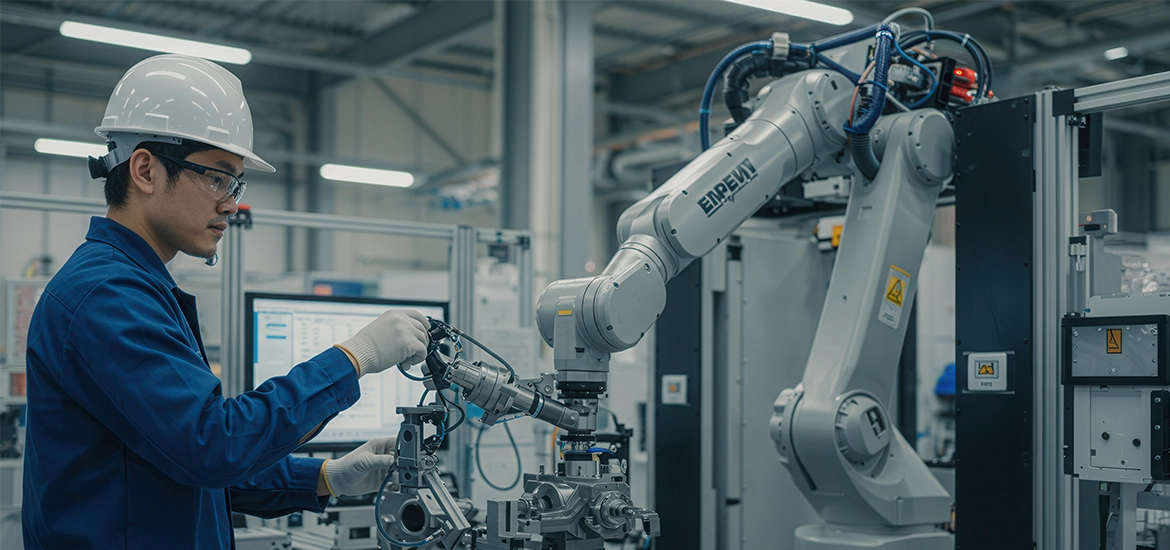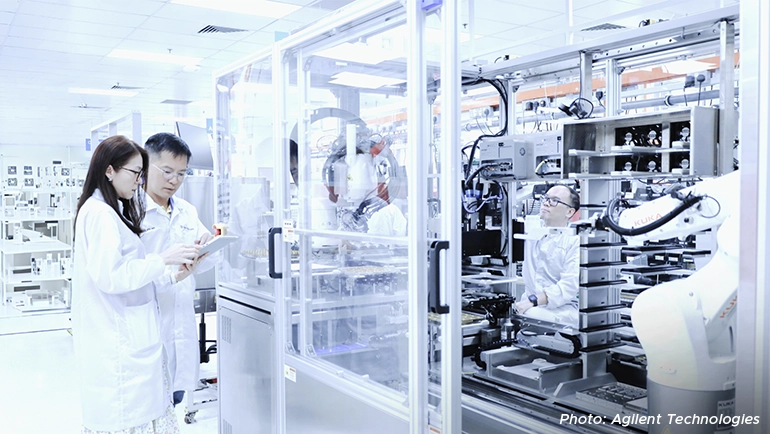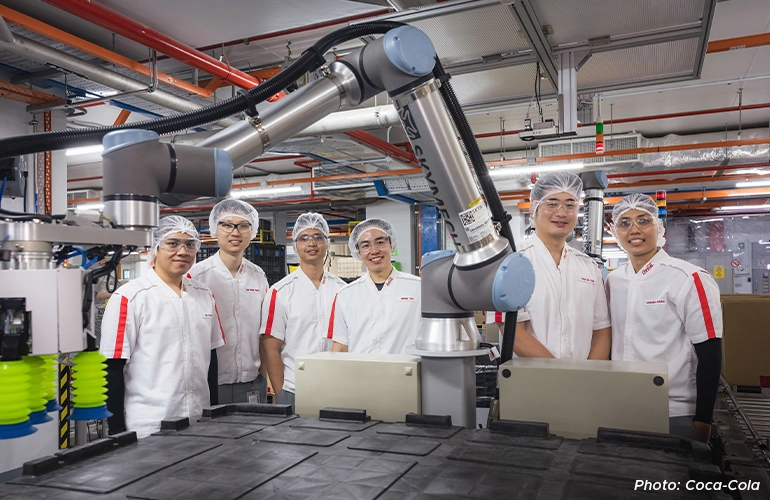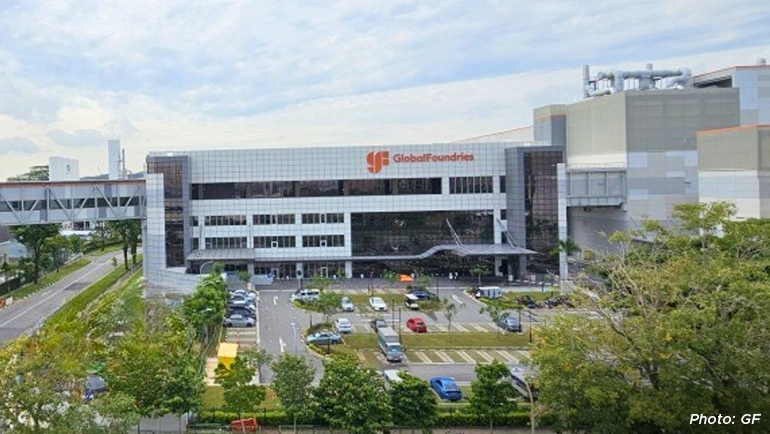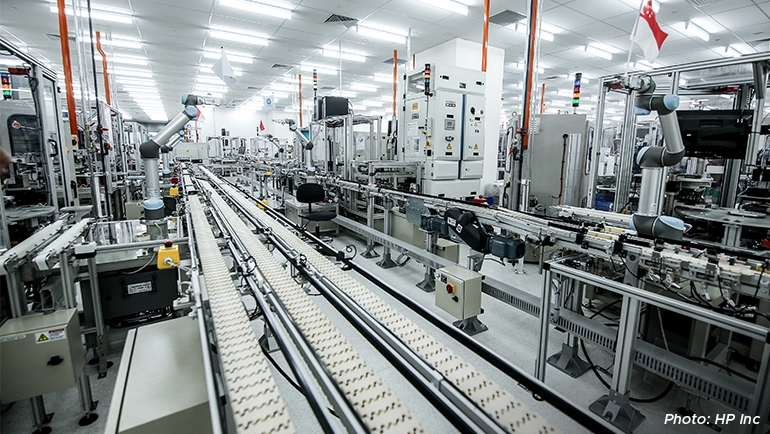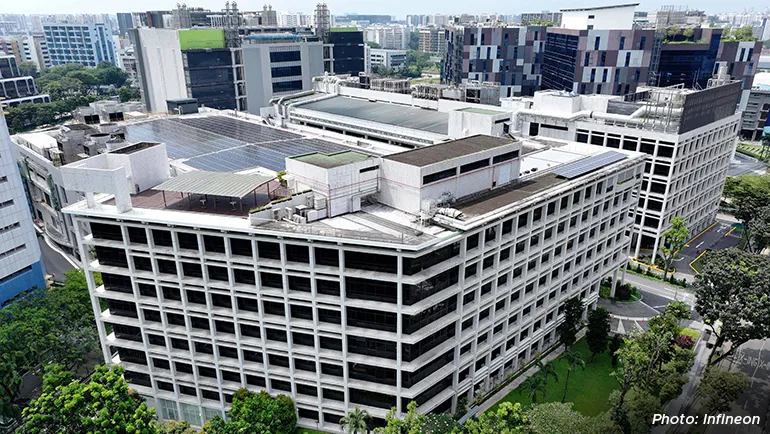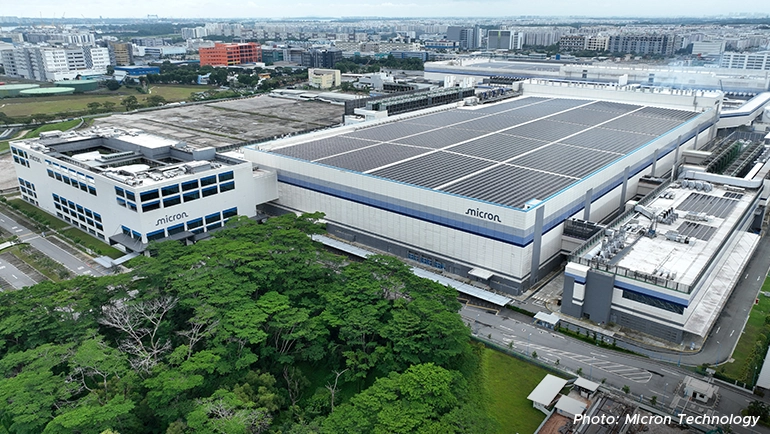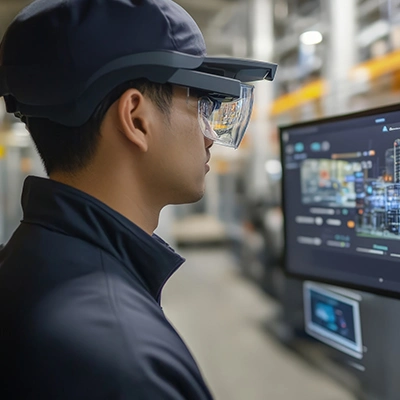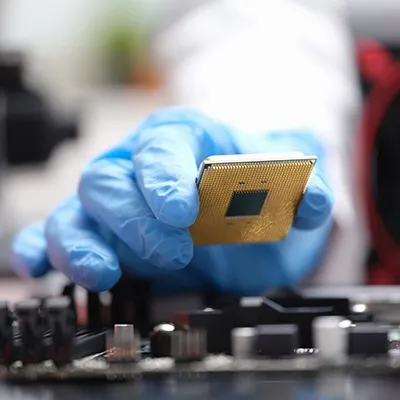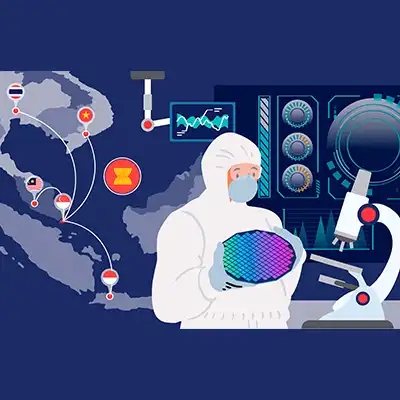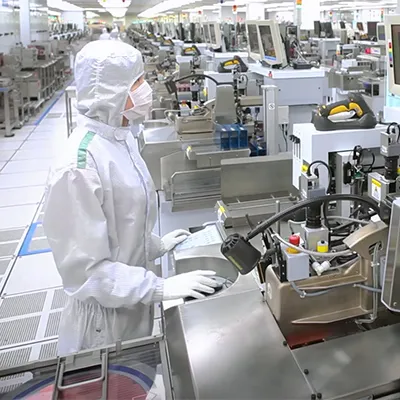Micron's Singapore facility was among the first in the country to receive WEF Lighthouse recognition in 2020, subsequently earning additional recognition as a Sustainability Lighthouse.
Micron’s Singapore fabs and assembly/test operations are central to the company’s global NAND flash memory operations. The semiconductor fabrication facility implemented a comprehensive suite of advanced technologies, integrating big data infrastructure with IIoT systems to enable artificial intelligence and data science solutions across operations. Advanced analytics for process optimisation with Original Equipment Manufacturers (OEMs) reduced time to ramp new products by 50 per cent, while deep learning optical-defect detection created a 2 per cent yield improvement. Between 2018 and 2021, output increased by 270 per cent, while resources consumed per gigabyte produced fell by 45 per cent. These results were enabled by a robust big-data infrastructure, AI-powered yield improvement, and smart water and energy systems. These achievements earned Micron recognition as both a Digital and a Sustainability Lighthouse — one of the few worldwide.
Read about Micron’s new HBM advanced packaging facility in Singapore
Here’s four ways in which Singapore enables advanced manufacturing
1) Highly skilled talent
Through higher education, internships, upskilling and remaining open to complementary global talent, Singapore is ensuring it has a robust pool and pipeline of manufacturing talent. About 35 per cent of the tertiary graduates annually have received a Science, Technology, Engineering, and Mathematics (STEM) education, with two universities – the National University of Singapore (NUS) and Nanyang Technological University (NTU) ranked among the world’s top 20 in engineering. For employees, they can upskill through schemes such as SkillsFuture and Career Conversion Programmes to take on new roles, while those still in school can hone their skills and gain industry exposure through Work-Study pathways and the ITE Technician Support Scheme.
2) Ready infrastructure and resources
Manufacturers in Singapore benefit from reliable, high-quality infrastructure that reduces operational risk. JTC is Singapore’s lead government agency for developing industrial infrastructure, including specialised parks and innovation districts that support advanced manufacturing. It manages around 86 per cent of Singapore’s industrial land, with its estates and business parks strategically located near key transport hubs to provide seamless connectivity to regional and global markets.
The Specialised parks such as Wafer Fab Park and Tuas Biomedical Park come with built-in utilities, while the Jurong Innovation District enables companies to co-locate research and development (R&D), training, and production in one hub. Access to competitively priced NEWater — a form of highly purified recycled water produced through advanced treatment processes — supports water-intensive sectors like semiconductors and pharmaceuticals.
Singapore’s advanced manufacturing R&D ecosystem connects companies with a wide network of institutes, universities, and corporate labs. Agencies like A*STAR anchor dedicated centres such as the Model Factory and the Advanced Remanufacturing and Technology Centre, where firms can test new technologies and co-develop solutions with researchers. This close partnership between industry and research accelerates the translation of ideas into industrial applications, helping manufacturers shorten development cycles and stay globally competitive.
3) Business-friendly environment
Singapore’s advanced manufacturing ecosystem makes it easier for companies to set up, operate, and innovate. Strong intellectual property protection gives firms the confidence to base high-value R&D here, while Singapore’s well-connected supply chains ensure efficient access to global markets. Streamlined regulatory processes increase efficiency while a strong base of global Engineering, Procurement, and Construction (EPC) firms and technology providers ensures access to the latest design and automation expertise. Public–private platforms such as National additive manufacturing innovation cluster (NAMIC), the National Robotics Programme (NRP), and A*STAR’s AI CoE for Manufacturing (AIMfg) allow firms to test, adopt, and scale Industry 4.0 solutions in real-world conditions, accelerating transformation and reducing execution risk.
4) Support to operate more sustainably
As manufacturers transition to greener operations, Singapore provides both policy support and ease of access to a supportive and ecosystem of partners with capabilities to support your sustainability journey. The city state’s commitment to achieving net zero by 2050 targets is driven by a variety of government and public-private sector collaborative initiatives, such as a whole-of-nation movement the Singapore Green Plan 2030and a S$10 billion Future Energy Fund intended to resource investments in new infrastructure for Singapore’s energy transition efforts.
Manufacturers based in Singapore benefit from ease of access to a diverse ecosystem of more than 140 carbon services and trading firms in Singapore, supporting their move towards cost-effective sustainable operations. These firms include consultancies providing low carbon advisory services, strategy development, carbon accounting, digital measurement, reporting and verification firms and engineering companies for solution delivery.
Download the Manufacturing the Future from Singapore Guide to discover how Singapore can support global manufacturers seeking growth and impact.
